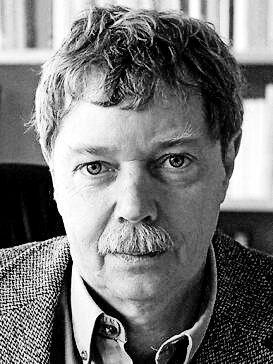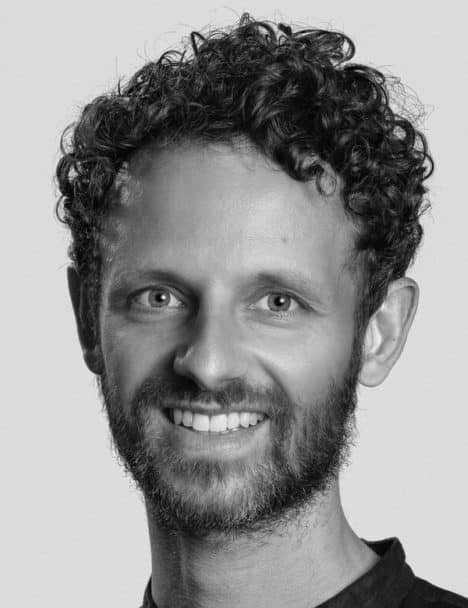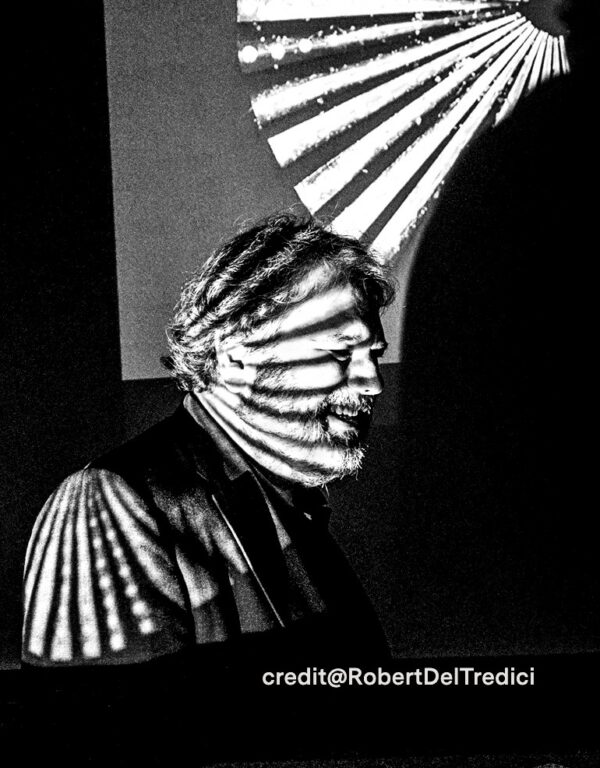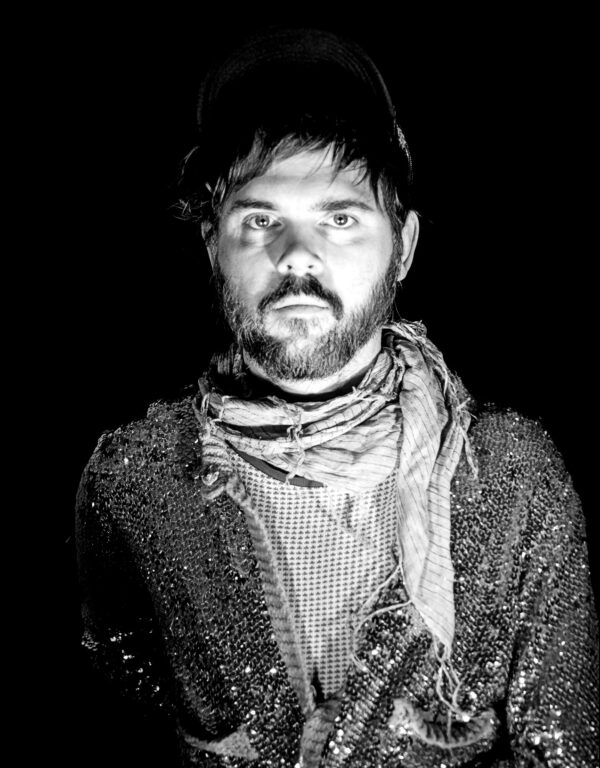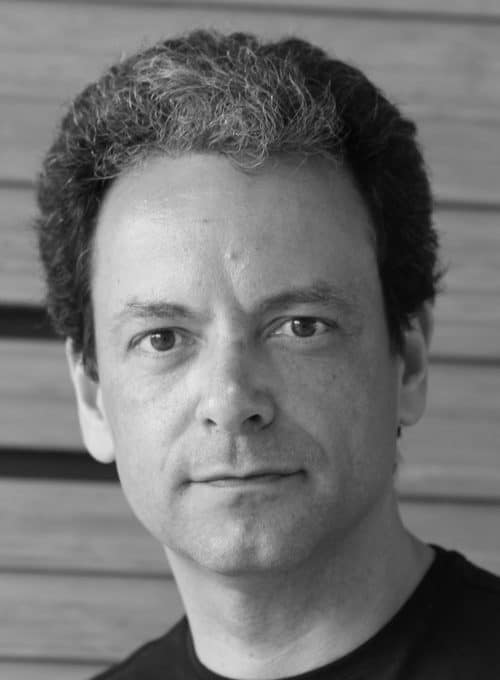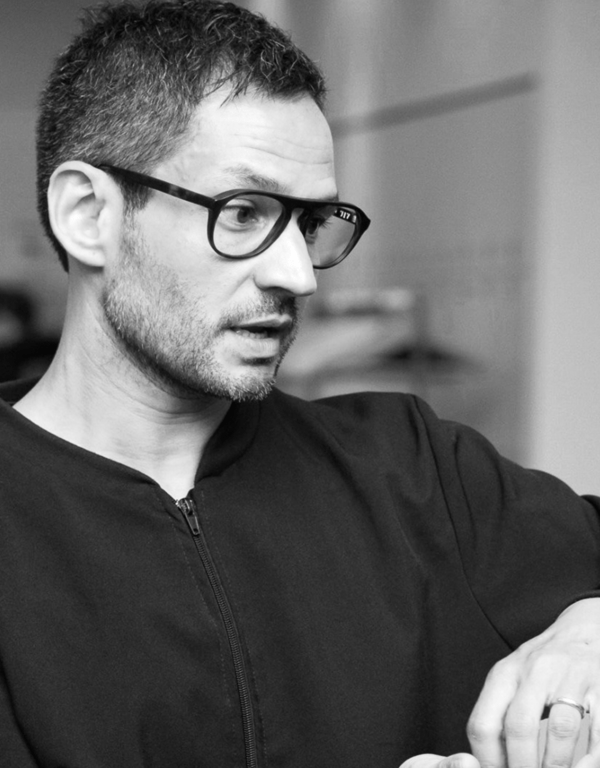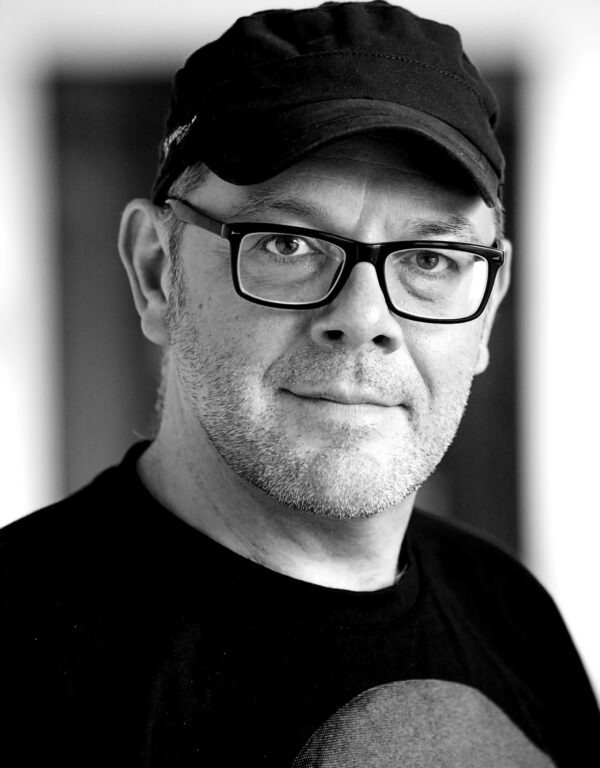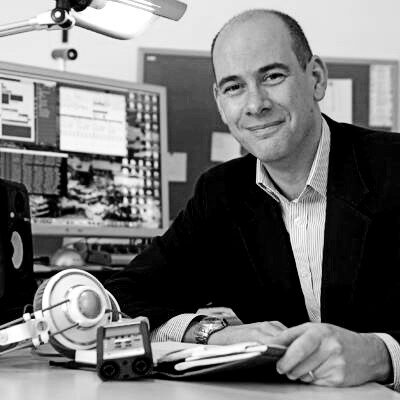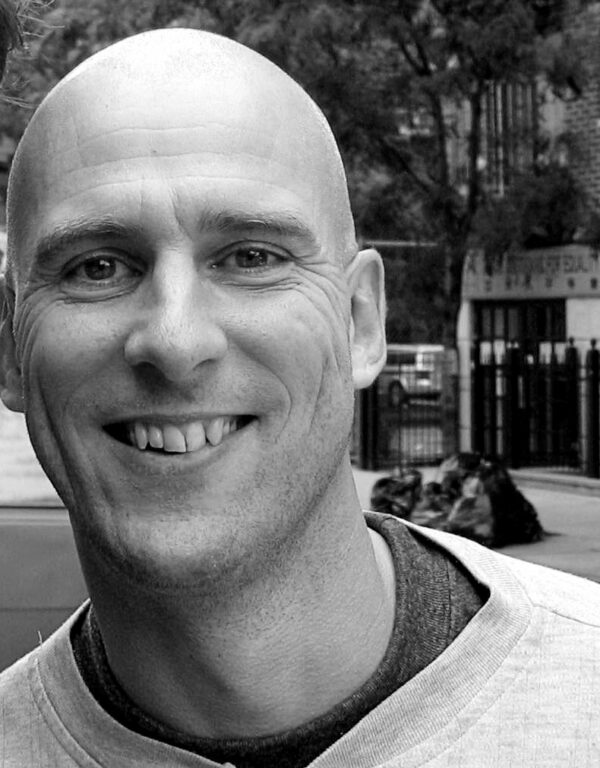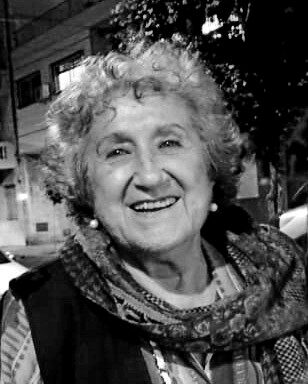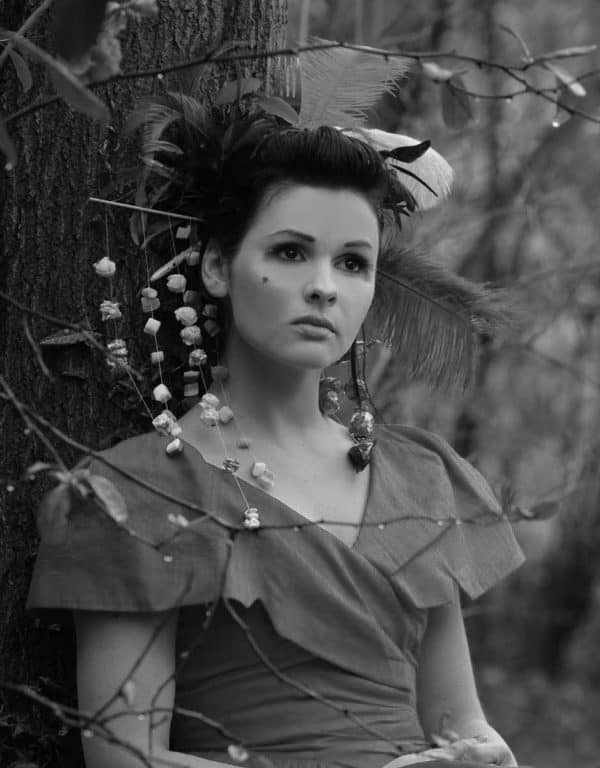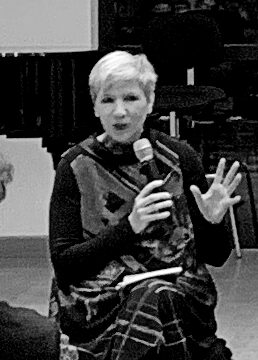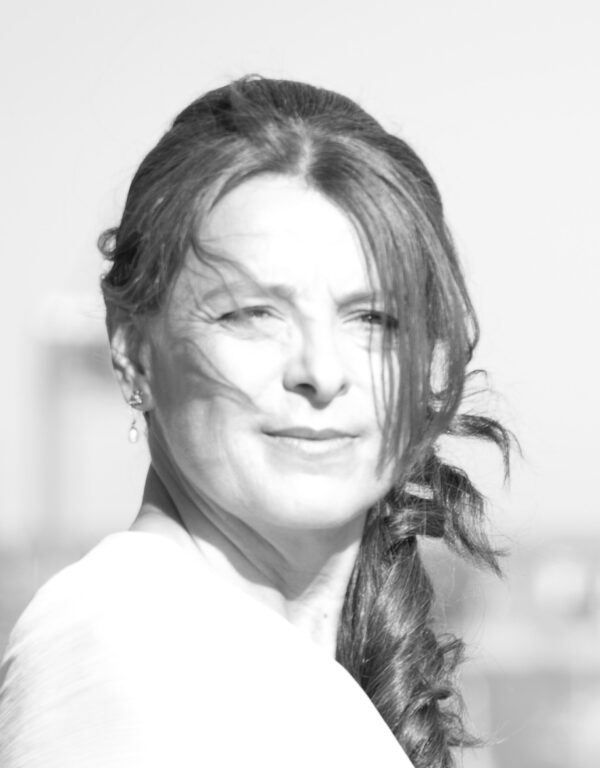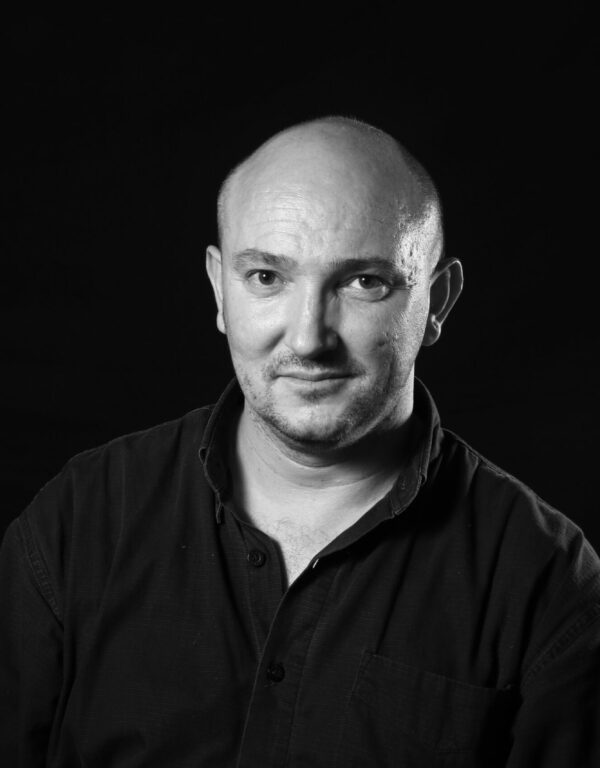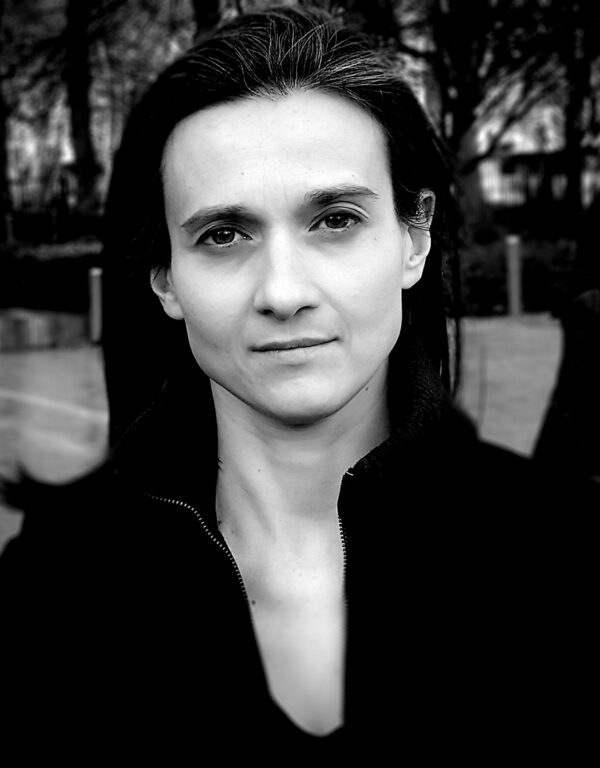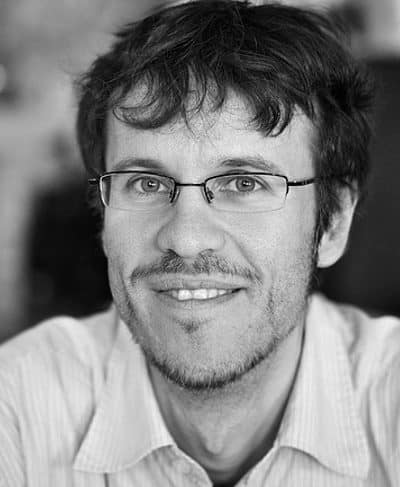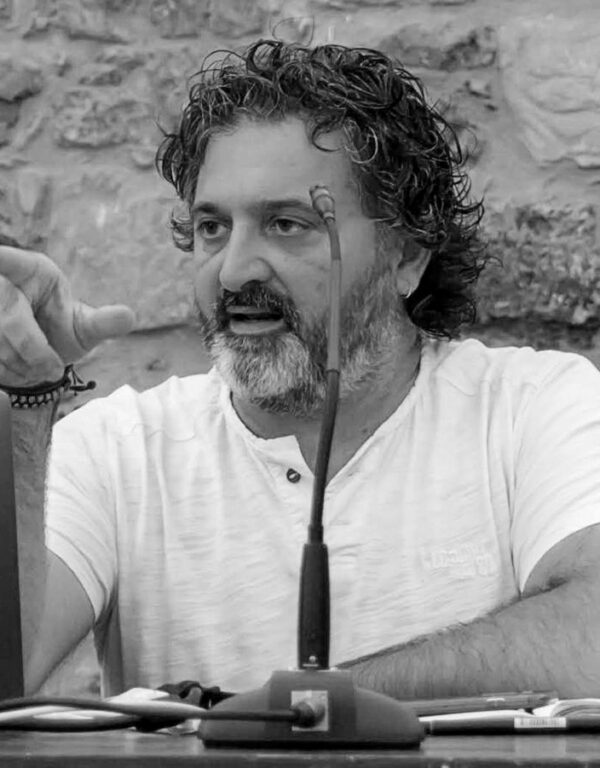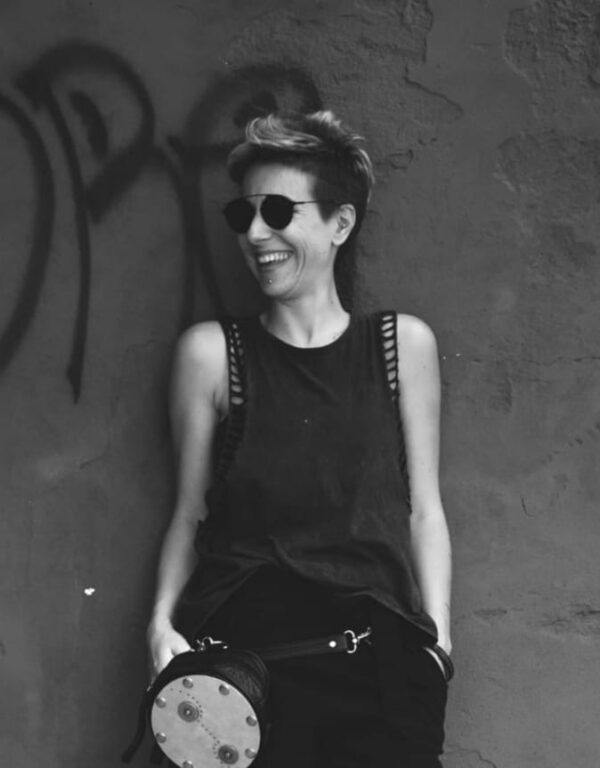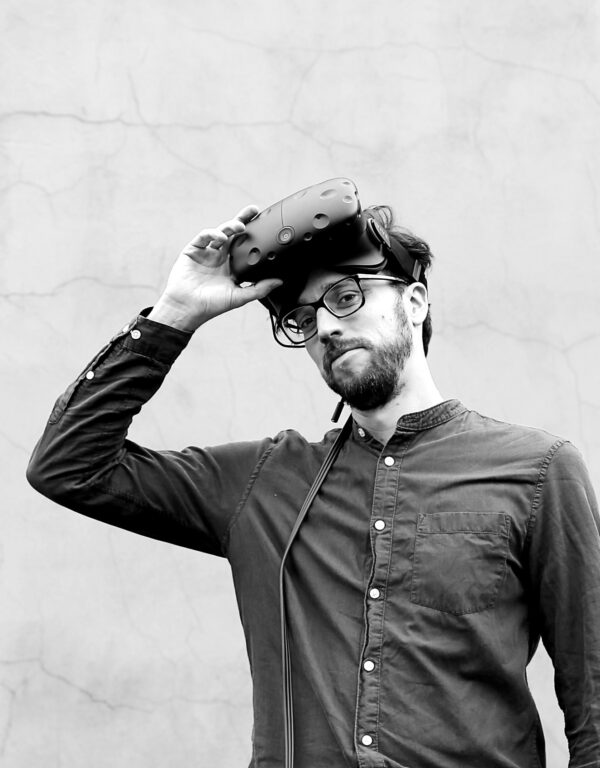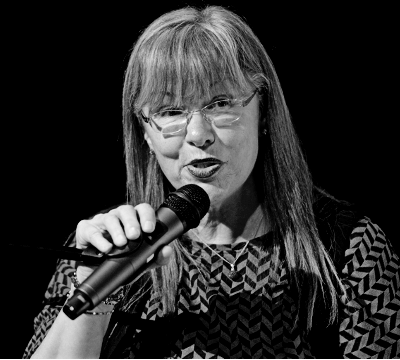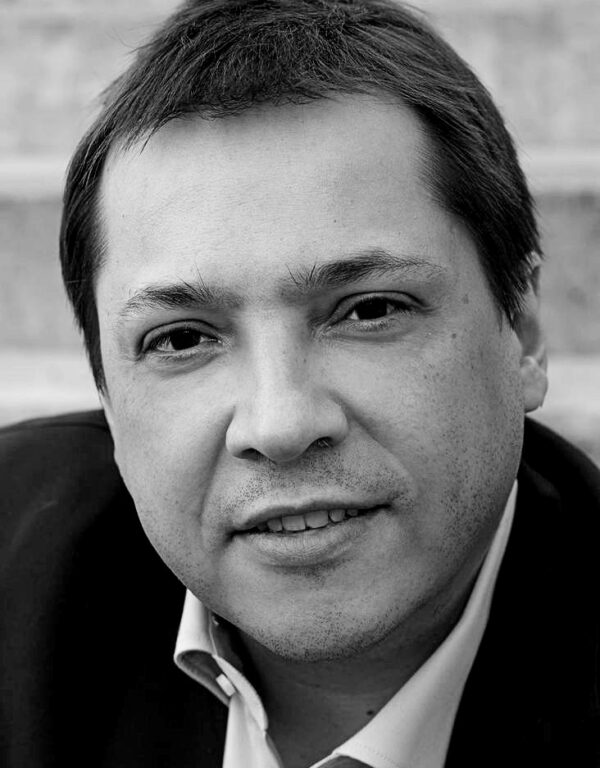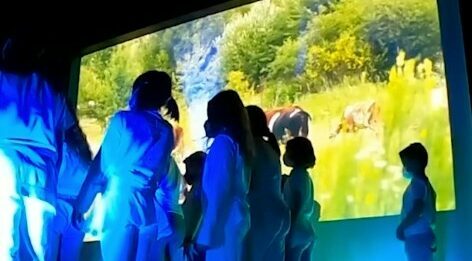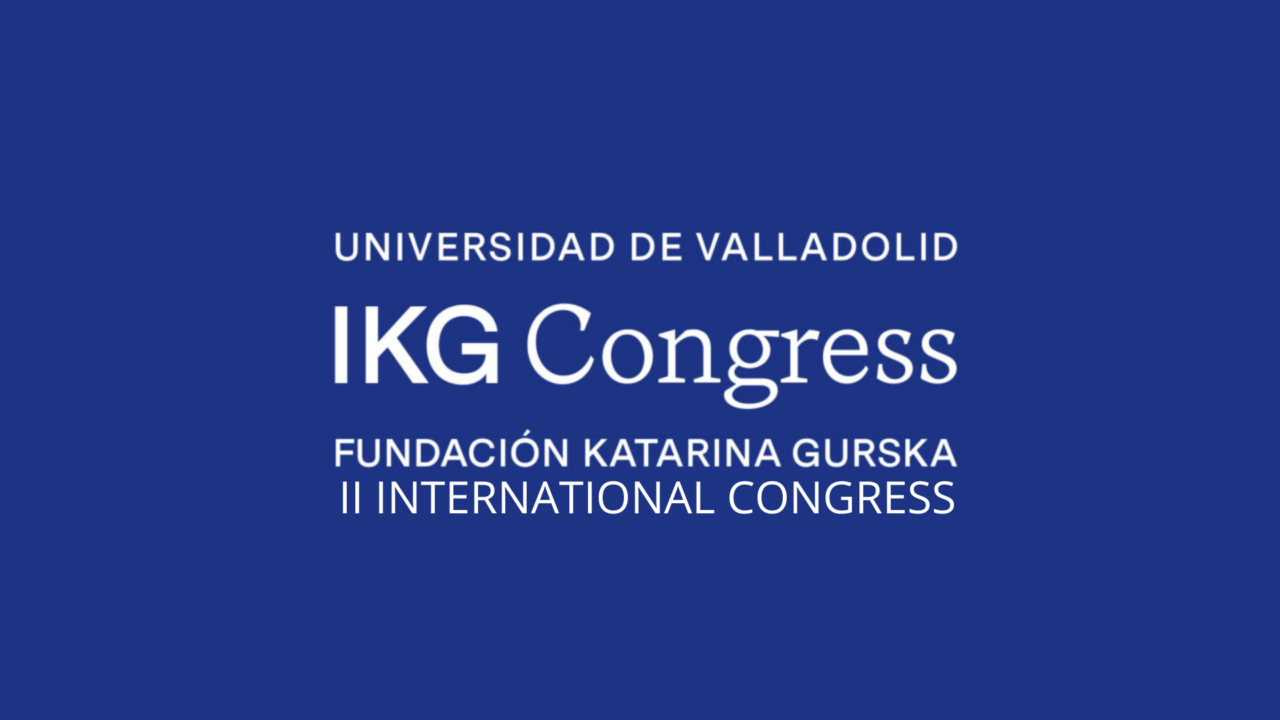- Guidance
- David Carabias Galindo
- Inés Monreal Guerrero
- Course ID
- INTCON21
- Course Start
- 03/09/2021
- Course End
- 05/09/2021
- 1. About the Congress
- 2. Objectives
- 3. Aimed at
- 4. Research Fields
- 5. Structure & Methodology
- 6. Conference Program
- 7. Congress Papers
- 8. Registration
- 10. Organising Institutions
- 11. Scientific Commitee
- 12. Organising Commitee
Research Fields
- Music and Culture
- Music and Education
- Music and Health
- Music and Instrumentality
- Music and Perception
- Music and Performance / Theatre
- Music and Society
- Music and Space
- Music and Visuality
- Music as Sound Art
About the Congress
With the social use of technology, interconnectivity and instantaneity, we face the challenge of providing musicians with the necessary concepts and mind-sets to adapt the development of their professional skills to the current paradigm and to understand and creatively deal with the changes within their respective fields. Educational institutions have to search for new concepts of knowledge production and redefine their structures to become hybrid models of think tanks and shelters, laboratories and publishers, funders and archivists at the same time and under one roof. Interdisciplinarity is the keyword of the hour but what are the personal and social prerequisites for a successful integration of the parties involved in contemporary music teaching, practice and musical innovation including all its traditions, cultural backgrounds, instrumentalities and mentalities?
We believe that physical and social technologies where always and will always be a crucial source for knowledge production and inspiration for artists, scientists and engineers. However, with the drastic and unprecedented reconfigurations of societies and economic structures artistic practice and production of knowledge cannot but constantly ask:
Will these fascinating technologies inspire uniformity or diversity?
Objectives
- To offer an overview of the link between music and artificial intelligence.
- To innovate in the field of emerging pedagogies within the artistic field.
- To present new innovative proposals in the field of musical pedagogy and artistic creation.
- To learn in the environment of the new digital era from a transdisciplinary artistic perspective.
- To present different lines of research linked to the fields of musical culture and society in the 21st century.
Aimed at
- Students of the DART programme and higher artistic education institutions.
- Doctoral students from UVa and other universities.
- University students from the UVa and other universities.
- Teachers from artistic disciplines
- Other interested people.
Research Fields
- Artistic Interaction and Technology
- Innovation in Music Education
- Arts, Science and Technology
- Music and Society in the 21st century
Structure & Methodology
The congress will include 4 research fields; each with the following structure: Plenary Conference, Virtual Garden Conversations, Expert Debate Table and Virtual Talk.
Plenary Conference
Plenary speakers, chosen from among the world’s leading thinkers, will offer formal presentations on topics of broad interest to the community and conference delegation. Plenary speakers answer questions and participate in informal, extended discussions during their Virtual Garden Conversation.
Virtual Garden Conversations
Garden Conversations are informal, unstructured sessions that allow delegates a chance to meet plenary speakers and talk with them at length about the issues arising from their presentation.
Expert Debate Table
For work that is best discussed or debated, rather than reported on through a formal presentation, these sessions provide a forum for an extended “roundtable” conversation among a small group of expertes.
Virtal Talk
Knowledge exchange between two experts based on their own professional experience, vision and perspective in a common topic.
Conference Program
| TIME | Friday, sept. 3, Afternoon Session: ARTISTIC INTERACTION AND TECHNOLOGY |
|---|---|
| 17.00 - 17.15 | Inauguration: Antonio Largo Cabrerizo, UVa Rector; Agustín García Matilla, UVa Vicerector; Katarina Gurska, President of FKG |
| 17.15 - 17.30 | Introduction |
| 17.30 - 18.30 | Plenary Conference I: Bruno Zamborlin |
| 18.30 - 19.00 | Virtual Garden I: Bruno Zamborlin & Delegates |
| 19.00 - 20.30 | Debate Table I: Alexander Vert, Klaus Obermaier, Frederic Bevilacqua, Bruno Zamborlin |
| 20.30 - 21.00 | Virtual Talk I: Alexander Schubert & Jonathan Harth |
| TIME | Saturday, sept. 4, Morning Session: INNOVATION IN MUSIC EDUCATION |
|---|---|
| 09.45 - 10.00 | Introduction |
| 10.00 - 11.00 | Plenary Conference II: Pamela Burnard |
| 11.00 - 11.30 | Virtual Garden II: Pamela Burnard & Delegates |
| 11.30 - 13.00 | Debate Table II: Ana Lucía Frega, Andrew King, László Stachó & Anna Vernia, Moderator |
| 13.00 - 13.30 | Virtual Talk II: Adolf Murillo & Jesús Tejada |
| TIME | Saturday, sept. 4, Afternoon Session: ARTS, SCIENCE AND TECHNOLOGY |
|---|---|
| 16:45 - 17:00 | Intruduction |
| 17.00 - 18.00 | Plenary Conference III: Hans Jörg Rheinberger |
| 18.00 - 18.30 | Virtual Garden: Hans Jörg Rheinberger & Delegates |
| 18.30 - 20.00 | Debate Table III: Elena Ungeheuer, Paul Vickers, Sandeep Bhagwati & Gerriet K. Sharma, Moderator |
| 20.00 - 20.30 | Virtual Talk III: Gregorio G. Karman & Angela Mc Arthur |
| TIME | Sunday, sept. 5, Morning Session: MUSIC AND SOCIETY |
|---|---|
| 09.45 - 10.00 | Introduction |
| 10.00 - 11.00 | Plenary Conference IV: Paulo de Assis |
| 11.00 - 11.30 | Virtual Garden IV: Paulo de Assis & Delegates |
| 11.30 - 13.00 | Debate Table IV: Marcel Cobussen, Bernd Herzogenrath, Lucia D´Errico & Davorka Begovic |
| 13.00 - 13.30 | Virtual Talk IV: Sandeep Bhagwati & Gerriet K. Sharma |
| 13.30 - 14.00 | Closing Session TBA |
Congress Papers
We encourage academics, researchers, teachers, and students to submit their paper proposals to Congress.
Papers must be original and unpublished and should address the research fields of the Congress:
- Artistic Interaction and Technology
- Innovation in Music Education
- Arts, Science and Technology
- Music and Society in the 21st century
A maximum of three papers may be submitted as authors. The first author will be the corresponding author in charge of communicating the status of the presentation to the other co-authors. All authors of a paper must be registered at the Congress for it to be accepted.
Authors must place their work in one or more of the above priority areas or propose others.
They must follow the following rules:
- Papers will have a length, in their main body, of between 700 and 1000 words (excluding title, authors, abstracts, and bibliographical references), and will be accompanied by abstracts (between 100 and 150 words) and keywords (between three and five) in Spanish and English.
- Papers should be prepared using the templates available in the papers section available HERE.
- Authors can modify the titles of the sections to suit their work, but always respecting the style of the template. Papers must follow the APA 7th edition style for bibliographical references, both in the body of the paper and in the final list.
Papers will be subject to blind evaluation, and will only be sent to the Congress organizers via the following email address: artemusopapers@gmail.com
INSTRUCTIONS FOR SUBMISSION
Accepted papers will be presented in the virtual platform of the Congress in organized sections according to the 4 research lines.
The presentation of each virtual communication will consist of:
- Video with the presentation of the content of the communication.
- Answers to the questions posted by the congress participants regarding the paper.
Video requirements:
- The video will have a duration of between 4 to 7 minutes. Videos that do not meet this time frame will not be accepted.
- The author or one of the authors must narrate the content of the presentation of the paper using an audio voice-over.
- It must be uploaded to a streaming portal (Youtube, Vimeo,…), with open access.
The templates for the creation of each slide that makes up the presentation will be given to the authors at the time of acceptance of the communication by the members of the Scientific Committee.
Note: Videos will only be accepted if all authors have paid the registration fee correctly.
IMPORTANT PAPER DEADLINES
- 20 February 2020: Opening of the call for papers
- 12 June 2021: Deadline for submission of papers
- 1 July 2021: notification of the result of the review of papers
- 5 July 2021: Deadline for accepted authors to register for the congress
PROMOTION AND DISSEMINATION
The Congress represents an important exchange and contribution of knowledge on the ways of approaching musical innovation in the new conditions of globalization and cultural industries in the digital era, thus collaborating in the adaptation of public policies in communication and its culture.
The Congress is seen as an opportunity to strengthen collaboration between researchers from different universities, educational and research centers working on similar topics, who will benefit from the exchange and the possibility of creating new networks and research teams.
The papers accepted by the Scientific Committee of the Congress will be collected in a digital Proceedings Book with ISBN from the Procompal Association publishing house. Procompal Publications. The congress staff will send a link to a virtual library at the beginning of the congress, where, after paying 10.40 euros, an online copy can be obtained.
An undetermined number of papers accepted to the congress will be proposed at the discretion of the congress management to be part of the monograph “Innovation in music education”, which will be published in the year 2023 by LEEME’s Electronic Journal. The communications will have to comply with the rules of the journal, be sent in the form of scientific articles in case of being proposed, and pass the evaluation of the journal.
The Electronic Journal LEEME (Electronic Journal of Music in Education) is published biannually and is indexed among others in SCOPUS, (SJR, Q2) and EMERGING SOURCES CITATION INDEX (Clarivate).
Registration
Registration and payment of the registration fee for the congress can be made through the Fundación General de la Universidad de Valladolid (FunGe) at the following LINK
One week prior to the Congress, the organization will send an email to each participant with specific instructions for access and participation in the Virtual Platform.
Fees
| Collective | Deadline | Fee |
|---|---|---|
| Organising & Scientific commitee | 30-08-21 | 0€ |
| Dart & Scholarship Students | 30-08-21 | 0€ |
| UVa & FKG Staff | 30-05-21 | 40€ |
| UVa & FKG Staff | 30-08-21 | 80€ |
| UVa Students | 30-05-21 | 80€ |
| UVa Students | 30-08-21 | 120€ |
| General | 30-05-21 | 100€ |
| General | 30-08-21 | 140€ |
Organising Institutions
- Recognized UVa Research Group on Education and ICTs
- Katarina Gurska Foundation and Institute for Artistic Research
Scientific Commitee
- Inés María Monreal Guerrero. Universidad de Valladolid
- David Carabias Galindo. Universidad de Valladolid
- Paulino Capdepón Verdú. Universidad de Castilla la Mancha
- Gerriet K. Sharma. Instituto Katarina Gurska
- Evangelos Himonides. UCL Institute of Education (IOE), London
- Carlos Duque Olmedo. Centro Superior Katarina Gurska
- Antonio Narejos Bernabéu. Ministerio de Educación y Formación Profesional
- María del Rosario Castañón Rodríguez. Universidad de Valladolid
- María José Vallés del Pozo. Universidad de Valladolid
- Anna María Vernia Carrasco. Universidad Jaume I
- Saray Prados Bravo. Universidad de Valladolid
- Manuel del Río Lobato. Universidad de Valladolid
- Luis Antonio González Marín. Institución Mila i Fontanals. Consejo Superior de Investigaciones Científicas
- María Elena Riaño Galán. Universidad de Cantabria
- Remigi Morant Navasquillo. Universidad de Valencia
- Leandro Martín. Conservatorio Superior de Tenerife
- Helena Caspurro. Universidad de Aveiro
- Ángela Morales Fernández. Universidad Autónoma de Madrid
- Michele della Ventura. Music Academy “Studio Musica”, Treviso, Italy
- Elena Berrón Ruiz. Universidad de Salamanca
- José Luis Parejo Llanos. Universidad de Valladolid
- María de la O Cortón de las Heras. Universidad de Valladolid
- Mauricio Rodríguez López. Universidad de Almería
- Alberto Acebes de Pablo. Universidad de Valladolid
Organising Commitee
- Cristina Sitz Gento. Fundación Katarina Gurska
- Inés María Monreal Guerrero. Universidad de Valladolid
- David Carabias Galindo. Universidad de Valladolid.
- María del Rosario Castañón Rodríguez. Universidad de Valladolid
- María José Vallés del Pozo. Universidad de Valladolid
- Saray Prados Bravo. Universidad de Valladolid
- Manuel del Río Lobato. Universidad de Valladolid
- Verónica Castañeda Lucas. Universidad de Valladolid
- Eva Fernández Gancedo. Universidad de Valladolid
- Alberto Acebes de Pablo. Universidad de Valladolid
- José Ignacio Farrán Martín. Universidad de Valladolid
- Cristina Gil Puente. Universidad de Valladolid
- Ruth Pinedo González. Universidad de Valladolid
- Juan Carlos Manrique Arribas. Universidad de Valladolid
- Félix Lobo de Diego. Universidad de Valladolid
- Carmen Gómez Redondo. Universidad de Valladolid
- Cristina Valles Rapp. Universidad de Valladolid
- Mauricio Rodríguez López. Universidad de Almería
- Antonio Jesús Calvillo Castro. IES Doñada
- María Ángeles Sevillano Tarrero. Universidad de Valladolid
- José Luis Parejo Llanos. Universidad de Valladolid
- María de la O Cortón de las Heras. Universidad de Valladolid
Mentors
Downloads
| Template for Papers: Download |
About the Congress
With the social use of technology, interconnectivity and instantaneity, we face the challenge of providing musicians with the necessary concepts and mind-sets to adapt the development of their professional skills to the current paradigm and to understand and creatively deal with the changes within their respective fields. Educational institutions have to search for new concepts of knowledge production and redefine their structures to become hybrid models of think tanks and shelters, laboratories and publishers, funders and archivists at the same time and under one roof. Interdisciplinarity is the keyword of the hour but what are the personal and social prerequisites for a successful integration of the parties involved in contemporary music teaching, practice and musical innovation including all its traditions, cultural backgrounds, instrumentalities and mentalities?
We believe that physical and social technologies where always and will always be a crucial source for knowledge production and inspiration for artists, scientists and engineers. However, with the drastic and unprecedented reconfigurations of societies and economic structures artistic practice and production of knowledge cannot but constantly ask:
Will these fascinating technologies inspire uniformity or diversity?
Objectives
- To offer an overview of the link between music and artificial intelligence.
- To innovate in the field of emerging pedagogies within the artistic field.
- To present new innovative proposals in the field of musical pedagogy and artistic creation.
- To learn in the environment of the new digital era from a transdisciplinary artistic perspective.
- To present different lines of research linked to the fields of musical culture and society in the 21st century.
Aimed at
- Students of the DART programme and higher artistic education institutions.
- Doctoral students from UVa and other universities.
- University students from the UVa and other universities.
- Teachers from artistic disciplines
- Other interested people.
Research Fields
- Artistic Interaction and Technology
- Innovation in Music Education
- Arts, Science and Technology
- Music and Society in the 21st century
Structure & Methodology
The congress will include 4 research fields; each with the following structure: Plenary Conference, Virtual Garden Conversations, Expert Debate Table and Virtual Talk.
Plenary Conference
Plenary speakers, chosen from among the world’s leading thinkers, will offer formal presentations on topics of broad interest to the community and conference delegation. Plenary speakers answer questions and participate in informal, extended discussions during their Virtual Garden Conversation.
Virtual Garden Conversations
Garden Conversations are informal, unstructured sessions that allow delegates a chance to meet plenary speakers and talk with them at length about the issues arising from their presentation.
Expert Debate Table
For work that is best discussed or debated, rather than reported on through a formal presentation, these sessions provide a forum for an extended “roundtable” conversation among a small group of expertes.
Virtal Talk
Knowledge exchange between two experts based on their own professional experience, vision and perspective in a common topic.
Conference Program
Friday, sept. 3,
Afternoon Sessions:
ARTISTIC INTERACTION AND TECHNOLOGY
- 17:00 – 17:15 Inauguration
- 17:15 – 17:30 Introduction: Antonio Largo Cabrerizo, UVa Rector; Agustín García Matilla, UVa Vicerector; Katarina Gurska, President of FKG
- 17:30 – 18:30 Plenary Conference I: Bruno Zamborlin
- 18:30 – 19:00 Virtual Garden I: Bruno Zamborlin & Delegates
- 19:00 – 20:30 Debate Table I: Alexander Vert, Klaus Obermaier, Frederic Bevilacqua, Bruno Zamborlin
- 20:30 – 21:00 Virtual Talk I: Alexander Schubert & Jonathan Harth
Saturday, sept. 4,
Morning Sessions:
INNOVATION IN MUSIC EDUCATION
- 09:45 – 10:00 Introduction
- 10:00 – 11:00 Plenary Conference II: Pamela Burnard
- 11:00 – 11:30 Virtual Garden II: Pamela Burnard & Delegates
- 11:30 – 13:00 Debate Table II: Ana Lucía Frega, Andrew King, László Stachó & Anna Vernia, Moderator
- 13:00 – 13:30 Virtual Talk II: Adolf Murillo & Jesús Tejada
Saturday, sept. 4,
Afternoon Sessions:
ARTS, SCIENCE AND TECHNOLOGY
- 16:45 – 17:00 Introduction
- 17:00 – 18:00 Plenary Conference III: Hans Jörg Rheinberger
- 18:00 – 18:30 Virtual Garden III: Hans Jörg Rheinberger & Delegates
- 18:30 – 20:00 Debate Table III: Elena Ungeheuer, Paul Vickers, Sandeep Bhagwati & Gerriet K. Sharma, Moderator
- 20:00 – 20:30 Virtual Talk III: Gregorio García Karman & Angela Mc Arthur
Sunday, sept. 5,
Morning Sessions:
MUSIC AND SOCIETY
- 09:45 – 10:00 Introduction
- 10:00 – 11:00 Plenary Conference IV: Paulo de Assis
- 11:00 – 11:30 Virtual Garden IV: Paulo de Assis & Delegates
- 11:30 – 13:00 Debate Table IV: Marcel Cobussen, Bernd Herzogenrath, Lucia D´Errico & Davorka Begovic
- 13:00 – 13:30 Virtual Talk IV: Sandeep Bhagwati & Gerriet K. Sharma
- 13:30 – 14:00 Closing Session
Congress Papers
We encourage academics, researchers, teachers, and students to submit their paper proposals to Congress.
Papers must be original and unpublished and should address the research fields of the Congress:
- Artistic Interaction and Technology
- Innovation in Music Education
- Arts, Science and Technology
- Music and Society in the 21st century
A maximum of three papers may be submitted as authors. The first author will be the corresponding author in charge of communicating the status of the presentation to the other co-authors. All authors of a paper must be registered at the Congress for it to be accepted.
Authors must place their work in one or more of the above priority areas or propose others.
They must follow the following rules:
- Papers will have a length, in their main body, of between 700 and 1000 words (excluding title, authors, abstracts, and bibliographical references), and will be accompanied by abstracts (between 100 and 150 words) and keywords (between three and five) in Spanish and English.
- Papers should be prepared using the templates available in the papers section available HERE.
- Authors can modify the titles of the sections to suit their work, but always respecting the style of the template. Papers must follow the APA 7th edition style for bibliographical references, both in the body of the paper and in the final list.
Papers will be subject to blind evaluation, and will only be sent to the Congress organizers via the following email address: artemusopapers@gmail.com
INSTRUCTIONS FOR SUBMISSION
Accepted papers will be presented in the virtual platform of the Congress in organized sections according to the 4 research lines.
The presentation of each virtual communication will consist of:
- Video with the presentation of the content of the communication.
- Answers to the questions posted by the congress participants regarding the paper.
Video requirements:
- The video will have a duration of between 4 to 7 minutes. Videos that do not meet this time frame will not be accepted.
- The author or one of the authors must narrate the content of the presentation of the paper using an audio voice-over.
- It must be uploaded to a streaming portal (Youtube, Vimeo,…), with open access.
The templates for the creation of each slide that makes up the presentation will be given to the authors at the time of acceptance of the communication by the members of the Scientific Committee.
Note: Videos will only be accepted if all authors have paid the registration fee correctly.
IMPORTANT PAPER DEADLINES
- 20 February 2020: Opening of the call for papers
- 12 June 2021: Deadline for submission of papers
- 1 July 2021: notification of the result of the review of papers
- 5 July 2021: Deadline for accepted authors to register for the congress
PROMOTION AND DISSEMINATION
The Congress represents an important exchange and contribution of knowledge on the ways of approaching musical innovation in the new conditions of globalization and cultural industries in the digital era, thus collaborating in the adaptation of public policies in communication and its culture.
The Congress is seen as an opportunity to strengthen collaboration between researchers from different universities, educational and research centers working on similar topics, who will benefit from the exchange and the possibility of creating new networks and research teams.
The papers accepted by the Scientific Committee of the Congress will be collected in a digital Proceedings Book with ISBN from the Procompal Association publishing house. Procompal Publications. The congress staff will send a link to a virtual library at the beginning of the congress, where, after paying 10.40 euros, an online copy can be obtained.
An undetermined number of papers accepted to the congress will be proposed at the discretion of the congress management to be part of the monograph “Innovation in music education”, which will be published in the year 2023 by LEEME’s Electronic Journal. The communications will have to comply with the rules of the journal, be sent in the form of scientific articles in case of being proposed, and pass the evaluation of the journal.
The Electronic Journal LEEME (Electronic Journal of Music in Education) is published biannually and is indexed among others in SCOPUS, (SJR, Q2) and EMERGING SOURCES CITATION INDEX (Clarivate).
Registration
Registration and payment of the registration fee for the congress can be made through the Fundación General de la Universidad de Valladolid (FunGe) at the following LINK
One week prior to the Congress, the organization will send an email to each participant with specific instructions for access and participation in the Virtual Platform.
Organising Institutions
- Recognized UVa Research Group on Education and ICTs
- Katarina Gurska Foundation and Institute for Artistic Research
Scientific Commitee
- Inés María Monreal Guerrero. Universidad de Valladolid
- David Carabias Galindo. Universidad de Valladolid
- Paulino Capdepón Verdú. Universidad de Castilla la Mancha
- Gerriet K. Sharma. Instituto Katarina Gurska
- Evangelos Himonides. UCL Institute of Education (IOE), London
- Carlos Duque Olmedo. Centro Superior Katarina Gurska
- Antonio Narejos Bernabéu. Ministerio de Educación y Formación Profesional
- María del Rosario Castañón Rodríguez. Universidad de Valladolid
- María José Vallés del Pozo. Universidad de Valladolid
- Anna María Vernia Carrasco. Universidad Jaume I
- Saray Prados Bravo. Universidad de Valladolid
- Manuel del Río Lobato. Universidad de Valladolid
- Luis Antonio González Marín. Institución Mila i Fontanals. Consejo Superior de Investigaciones Científicas
- María Elena Riaño Galán. Universidad de Cantabria
- Remigi Morant Navasquillo. Universidad de Valencia
- Leandro Martín. Conservatorio Superior de Tenerife
- Helena Caspurro. Universidad de Aveiro
- Ángela Morales Fernández. Universidad Autónoma de Madrid
- Michele della Ventura. Music Academy “Studio Musica”, Treviso, Italy
- Elena Berrón Ruiz. Universidad de Salamanca
- José Luis Parejo Llanos. Universidad de Valladolid
- María de la O Cortón de las Heras. Universidad de Valladolid
- Mauricio Rodríguez López. Universidad de Almería
- Alberto Acebes de Pablo. Universidad de Valladolid
Organising Commitee
- Cristina Sitz Gento. Fundación Katarina Gurska
- Inés María Monreal Guerrero. Universidad de Valladolid
- David Carabias Galindo. Universidad de Valladolid.
- María del Rosario Castañón Rodríguez. Universidad de Valladolid
- María José Vallés del Pozo. Universidad de Valladolid
- Saray Prados Bravo. Universidad de Valladolid
- Manuel del Río Lobato. Universidad de Valladolid
- Verónica Castañeda Lucas. Universidad de Valladolid
- Eva Fernández Gancedo. Universidad de Valladolid
- Alberto Acebes de Pablo. Universidad de Valladolid
- José Ignacio Farrán Martín. Universidad de Valladolid
- Cristina Gil Puente. Universidad de Valladolid
- Ruth Pinedo González. Universidad de Valladolid
- Juan Carlos Manrique Arribas. Universidad de Valladolid
- Félix Lobo de Diego. Universidad de Valladolid
- Carmen Gómez Redondo. Universidad de Valladolid
- Cristina Valles Rapp. Universidad de Valladolid
- Mauricio Rodríguez López. Universidad de Almería
- Antonio Jesús Calvillo Castro. IES Doñada
- María Ángeles Sevillano Tarrero. Universidad de Valladolid
- José Luis Parejo Llanos. Universidad de Valladolid
- María de la O Cortón de las Heras. Universidad de Valladolid
Mentors
Downloads
| Template for Papers: Download |


